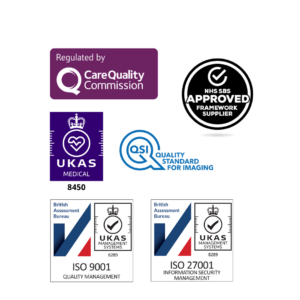We start this week’s blog with an article from the New Scientist (NS) about one of the most dreaded of all conditions, dementia.
For many, many years, scientists have been searching for the magic bullet that will finally start to turn the tide on this condition. Indeed in June of this year, the US Food and Drug Administration approved a new drug, aducanumab. This was mainly on the basis that it reduced amyloid plaques in the brain; thought by many to her the cause of Alzheimer’s, and the thinking goes that if it reduces the amyloid plaques, it must reduce the effect of dementia.
The amyloid plaque hypothesis has been around for many years. The logic is pretty straightforward; patients with Alzheimer’s have lots of these plaques, so they are most likely the cause. Except to date, all drugs aimed at reducing them have had little effect on the cognitive decline in Alzheimer’s.
Amyloid plaques are not the only change noted in the brains of Alzheimer’s patients; they also accumulate large amounts of a protein called tau. This is present in normal brains and helps support normal nerve cells; however, in Alzheimer’s, they start to clump together in much larger quantities. And the levels of tau build-up correlate much more closely with cognitive decline than those of amyloid. Sadly there are no effective drugs that alter the levels of tau.
Some researchers have suggested that infections may have a part to play in the development of dementia, as it has been found to occur more commonly in those with extensive and prolonged gum disease.
Thus we are still a long way from really understanding the cause or causes of this condition. Increasingly, it is being considered that dementia is the result of a form of brain inflammation triggered by as yet unknown agents and that the amyloid and tau are in response to that inflammation, an attempt to heal the brain, not the cause of dementia.
However, there is some good news amongst this gloom. Studies have shown that you can reduce your risk of developing dementia by somewhere in the region of 20% by taking a few simple steps. And curiously, these are almost the same things you would do to reduce your risk of heart disease.
Keep active; have a balanced diet, and ensure you get enough sleep; at least 7 to 8 hours a night. Now, this may sound simplistic, yet the evidence is clear. It is also well recognised that those who speak several languages, play musical instruments, or have stimulating jobs all seem to have a degree of protection. So if you do nothing else, move a bit more, sleep more and stimulate that brain.
The importance of gut health
Sticking with the NS, did you know that the secret to a long and healthy life is lurking in your bowels? Yes, your gut. And it appears to be all down to having a diverse collection of bacteria in your gut; (these bugs are called your microbiome).
Studies from South Korea demonstrated a link between the diversity of the gut microbiome and longevity. They also studied a group of centenarians, and again this was found to be the case. However, the reasons why such diversity is associated with longevity are not understood.
Scientists have also noted a curious effect when they “transplant faces” from young to old mice. ( yes, they actually take the faeces and insert them in the other mouse and before you get too squeamish, this is also actually used occasionally in people as a treatment for severe diarrhoea; to good effect). Interestingly the scientists noticed a rejuvenating effect on the older mice who received the faecal transplants.
Ok, this is all very interesting but what can you do? Sadly the answer isn’t clear as most of the probiotics you can buy may help with some gut disorders or allergies, but as far as gut diversity and ageing go, there’s no apparent benefit.
It’s known that fermented foods including yoghurt, kombucha and pickles do increase gut bacteria diversity. ( I recently bought myself a kombucha kit; pretty easy to do and tastes pretty good); so worth exploring.
Finally, prebiotics clearly have a place; but these are different to the probiotics that you can buy. Prebiotics are fibre supplements that feed your gut bacteria. They go under the technical names of inulin, beta-glucan, fructo-oligosaccharide and galacto-oligosaccharide ; but they are not readily available; however, watch this space.
This advice comes with a warning; everything in moderation, as too much of the probiotics or fermented foods, will give you abdominal cramps.
Does exercise reduce the risk of osteoarthritis?
Next to an article in the Journal of Arthritis & Rheumatology concerning the tricky question of “is too much exercise bad for your knees?” Osteoarthritis (OA), or wear and tear in the knees, is more common as you age. The cartridge ( the spongy layer that covers the bones in your joints) can degenerate. This, however, isn’t just a factor of ageing as some people in their 40s will have significant osteoarthritis, yet many in their 90s remain pain-free.
The University of Southampton recently undertook a study involving over 5000 patients who were initially symptom-free. They recorded how much exercise each person did and graded these according to intensity. They then followed the patients for up to 12 years and recorded all those who developed osteoarthritis of the knees.
Interestingly their results demonstrated that the likelihood of developing OA did not correlate with activity levels, neither how much time people spent exercising nor the intensity of those exercises.
So good news; you won’t develop OA because of exercising too much; indeed, there’s a wealth of evidence to show that exercises that strengthen the knee muscles will reduce the pain from knee OA and may delay the need for surgery.
Is the Covid vaccine affecting women’s menstruation?
Finally back to the BMJ and a paper by Victoria Male a lecturer in reproductive immunology at Imperial; concerning the association between menstrual disorders and Covid vaccinations.
We are all aware that following Covid vaccinations, it is likely you may develop a sore arm, a minor fever, sore muscles and fatigue; these are well recognised. However, it is possible that the vaccines may also cause a disturbance in menstruation in some women.
When Doctors come across a side effect of a medicine or vaccine they are obliged to complete what’s known as a “yellow form” and send it to the Medicines and Healthcare Products Regulatory Agency (MHRA). The MHRA has so far received more than 30,000 such reports across all vaccines used.
The majority of changes are short-lived, with the individual’s typical pattern returning within a couple of months. There is also no evidence of vaccines adversely affecting fertility, and it was noted that during the vaccine trials, unintended pregnancies occurred at similar rates across all groups, both vaccinated and non vaccinated.
The likely mechanism of changes to menstruation is thought to be through the immune changes that the vaccine stimulates.
The yellow card scheme is not great at capturing data as many reactions are considered to be “normal” and not reported. There will also be a large group of women who just don’t seek advice and just wait for their cycle to return to normal. Therefore it is important that more research is undertaken in this area so that we can be absolutely sure of the effect and, secondly, and most importantly, can therefore counsel women about the likely changes that may happen.
That’s all for this week.
 OUR BLOG
OUR BLOG

 Paul Zollinger-Read CBE
Paul Zollinger-Read CBE




